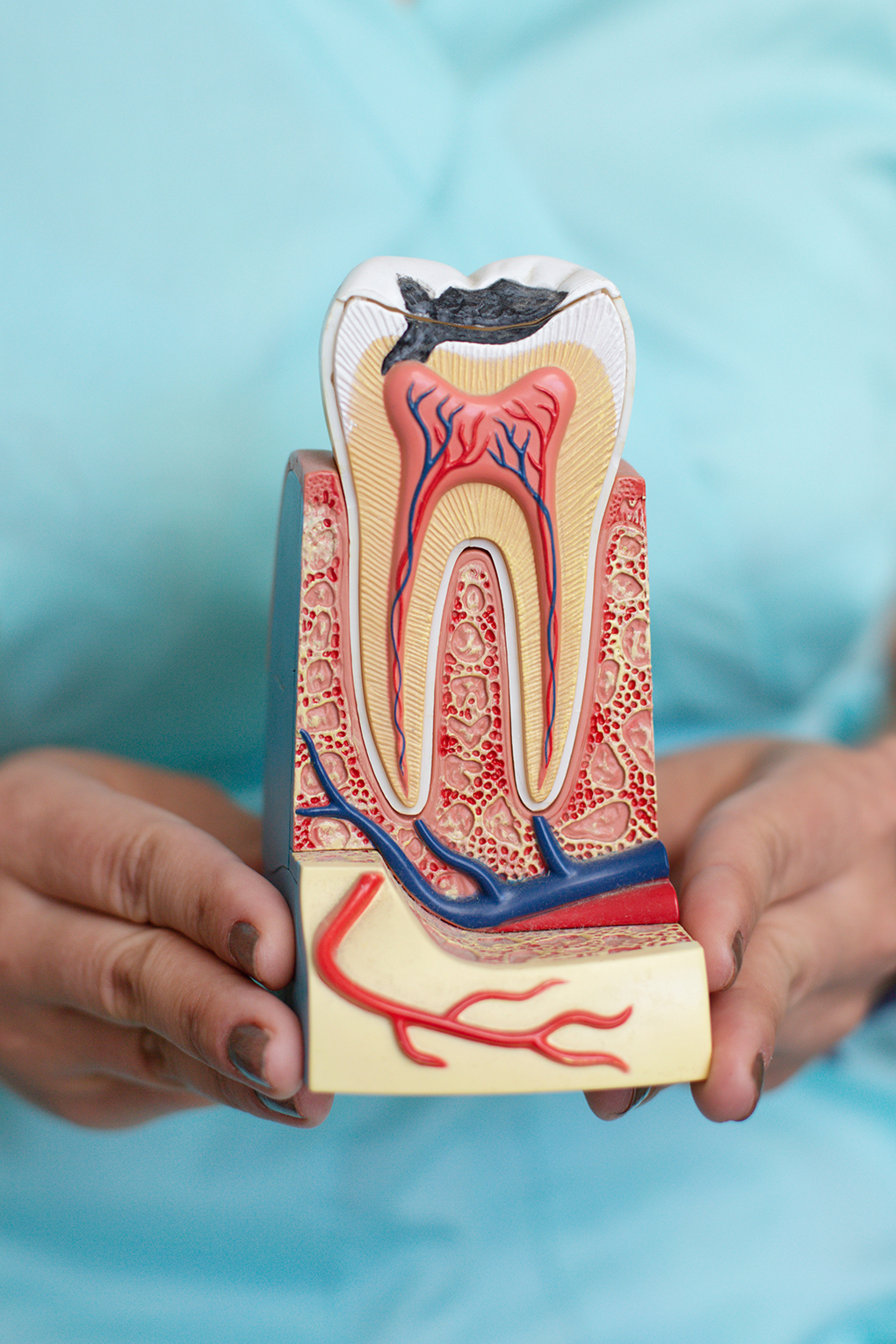“I’d rather have a root canal!” We’ve all heard the jokes. When something unpleasant or painful comes up, you might hear it compared to this much-dreaded dental procedure. Over the years, root canals have gotten a bad reputation for being painful. But the truth is, today’s root canals are much
easier than most people think.
Root canals are the safest, most effective way to ease the pain of an infected tooth. In fact, the pain and sensitivity of an infected tooth are usually worse than the root canal procedure itself. This means the root canal is the fastest way to getting much needed relief.
Thanks to modern dental care, root canals can be done with very little discomfort.

Does a Root Canal Hurt?
The idea that root canals are very painful comes from stories shared many years ago. In the past, dental tools and numbing methods were not as advanced as they are now. Local anesthetics were not widely used by dentists until the 1950s. If you had a toothache to begin with, and a dentist started drilling without these nerve-numbing drugs, of course a root canal would hurt.
The good news is that today’s root canals are much easier than most people think because dentists have much better tools to use. The development of stronger numbing medicines, advanced dental instruments, and more gentle techniques mean that having a root canal today feels more like getting a filling than anything else.
Why Do I Need a Root Canal?
A root canal is a dental procedure that helps save a tooth that is badly infected or damaged. Inside every tooth, under the hard outer layers, is a soft center called the pulp. This pulp contains nerves and blood vessels.
When a cavity, crack, or injury allows bacteria to reach the pulp, it can become infected. The infection can cause serious pain and even lead to an abscess or tooth loss if not treated.
During a root canal, the dentist removes the infected pulp, cleans the inside of the tooth, and then seals it to protect it from future problems. Most patients get a crown on the tooth afterward to make it strong and look natural.
Root canals are important because they can restore teeth that might otherwise need to be pulled.
What Happens During a Root Canal?
Having a root canal is really not much different than having a cavity filled. One difference is that a root canal may take two visits to complete.
- Before getting started, the dentist will administer a local anesthetic to completely numb the tooth. Some patients feel a quick pinch or slight sting. Though this lasts only a few seconds, many patients report that the shot was the most uncomfortable part of the procedure!
- Once the tooth is numb, the rest of the root canal should be pain-free. The dentist will use a drill to make a small opening on the top of the tooth. They will drill down until they reach the pulp chamber.
- With very small tools, the dentist will clean the pulp out of the center of the tooth. They will take special care to remove all of the infected tissue. They may apply some medicine to the pulp chamber to make sure no new bacteria can grow.
- The empty space is filled with a rubber-like material, and a temporary crown is placed on the tooth to seal it.
- In a few weeks, the patient will return to the dentist for the placement of a permanent crown.
After the procedure, antibiotics may be prescribed to avoid further infection. Follow-up appointments will be necessary to make
sure the procedure was successful and that the infection
hasn’t returned.
For patients who are nervous, the dentist can go slowly, explain each step, and help them relax. Some may offer relaxing music or encourage patients to bring their own headphones and favorite playlist. Patients who have dental anxiety can request to be sedated during the procedure, but many people are surprised by how little a root canal actually hurts – and how glad they are once the pain from the infected tooth is gone.
A Root Canal Helps, Not Hurts
Even if the idea of a root canal makes you nervous, it is important to remember why the procedure is needed in the first place. A root canal stops pain caused by infection and saves the natural tooth. Without it, the infection can get worse, and the tooth might need to be pulled.
Root canals also prevent problems in other parts of the body. A deep tooth infection can sometimes spread to the jaw or even to other organs. Treating the infection early protects both the tooth and the patient’s overall health.
Plus, saving a natural tooth is always better than having it removed. With a crown on top, a tooth that has had a root canal can look and work just like the other teeth.
Remember, a root canal procedure is the solution to a painful problem. And modern dentistry practices make it easier than ever. To find a dentist who performs root canals near you, use our online search tool.


